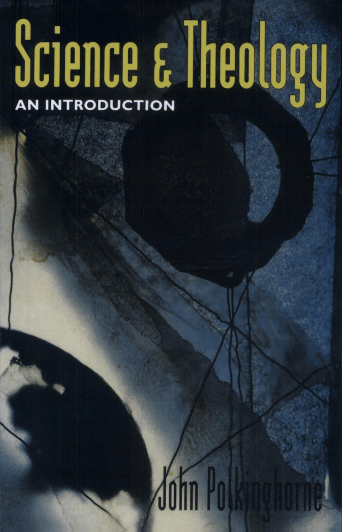Book Review: Science & Theology
Science & Theology:
An Introduction
by J. C. Polkinghorne
Review by Erica Bolin
In Science & Theology: An Introduction, John Polkinghorne, President Emeritus of Queen’s College, Cambridge, and a Fellow of the Royal Society, presents a college-level textbook that, in his own words, “attempts the humble but useful task of surveying the whole intellectual scene in an even-handed manner, recording as clearly as possible the variety of issues under discussion, explaining the possible treatments they can receive, and surveying the opinions of those writers who have made significant contributions to the field.” This introduction to the stimulating field of science and theology is both accessible and authoritative, and has much to offer high school science teachers as well as those in higher education.
The book is organized in a “spiral fashion,” beginning with broader questions of how science and theology influence one another, and then narrowing down to particular questions such as theism, deism, Christian theology, and other world religions. Polkinghorne includes thoughts on the origins of humanity, the nature of God, and how one may respond and act ethically given modern advances in technology. He presents a clear overview of major elements in current science such as quantum theory, chaos theory, time, and cosmology. He then offers a concise outline of the character of religion and shows the joint potential of science and religion to illumine some of the thorniest issues in theology today: creation, the nature of knowledge, human and divine identity, and agency.
The opening chapter provides the historical context of the nature of science as it relates to the nature of theology, comparing methodologies and epistemological concerns. He casts nuanced light on the conflicts surrounding the discoveries of Galileo and Darwin, which are often painted as black and white. The treatment of these accounts reflects what is to come: an impartial description of interactions between investigations of the physical and interpretations of the metaphysical, always admitting the limited nature of our understanding, and leaving room for further possibility. This first chapter is accessible and concise enough to be included in an upper level high school class as part of a unit on the nature of science.
The second chapter is a fairly technical primer on the frontiers of science that may prove to be challenging for those with little or no background in physics, yet it offers an enticing taste of the macro and nano dimensions of what can be known and the relevance to the wider metaphysical discussion. This is followed in chapter 3 by a discussion of what may be one of the most important meeting points of scientific and theological insight: the nature of the human person and the relationship between mind and brain.
The fourth chapter, concerned with the nature of God as it is understood in the broad Western tradition, presents a natural theology intent on complementing rather then creating conflict with scientific insight. Chapter 5 moves from deism to theism, asking how one might imagine divine actions taking place in the orderly universe as described by science. Polkinghorne includes a discussion of the relevance of quantum theory and chaos theory to an understanding of agency, both human and divine, as well as the difficult topic of theodicy in a supposedly good creation.
Chapter 6 considers topics central to Christian belief such as the resurrection of Christ, the Trinity, and destiny beyond death. Polkinghorne calls this “bottom-up thinking,” moving from evidence to understanding in the quest for motivated belief. Chapter 7 examines various ways in which the different world faith traditions might be understood to relate to each other, and suggests each traditions’ relationships to scientific knowledge that might provide a creative meeting point for mutual encounter. This chapter is followed by a discussion of ethical issues that arise from scientific discoveries.
This short masterpiece by an eminent scientist and theologian aptly demonstrates that a sturdy faith has nothing to fear and much to gain from an intellectually honest appraisal of the new horizons of contemporary science

